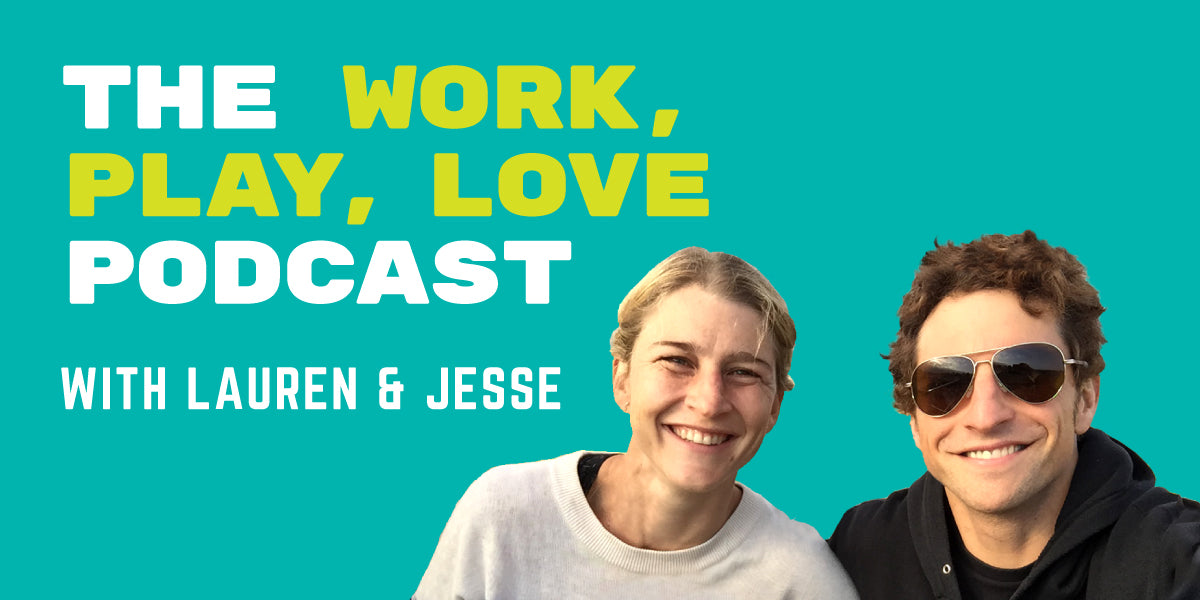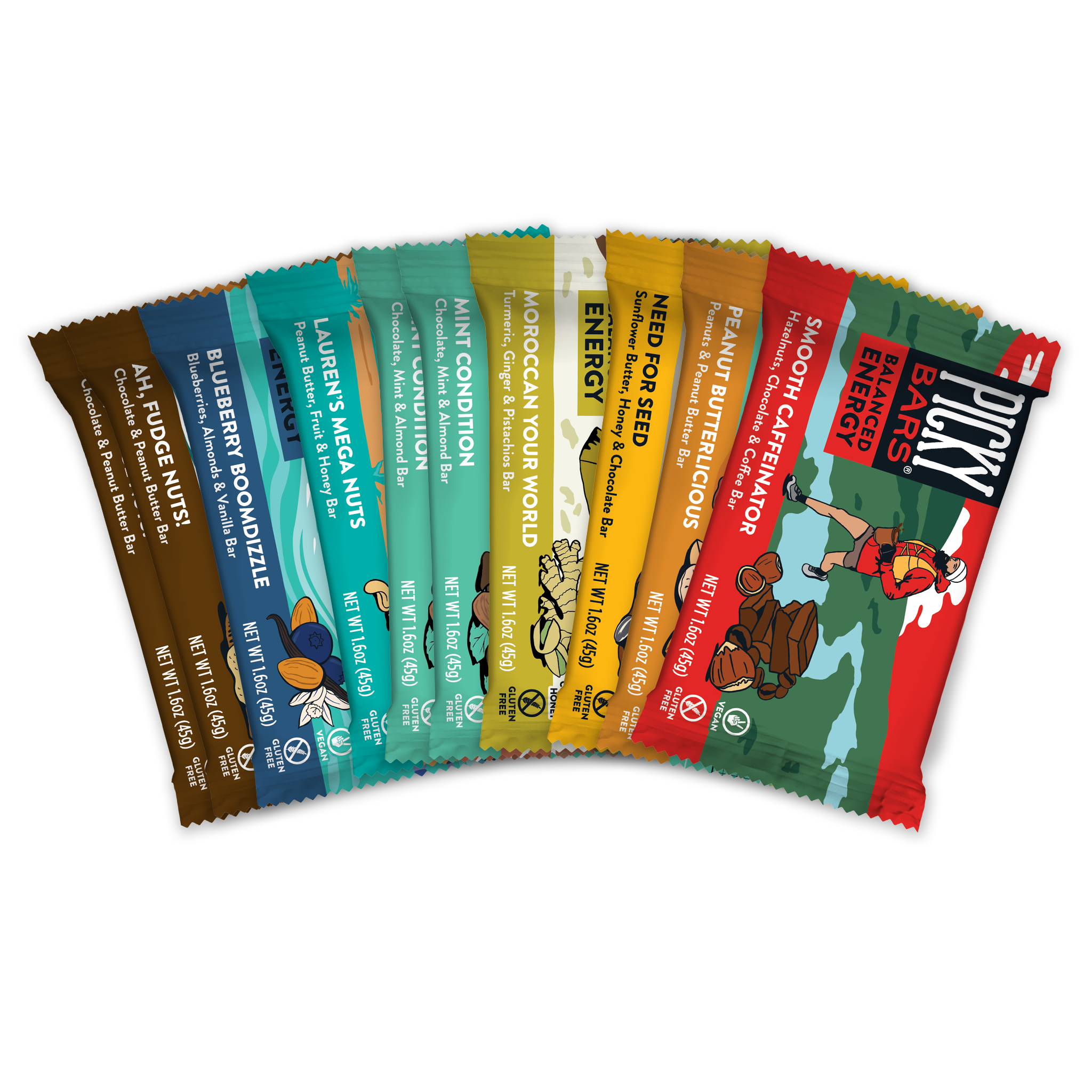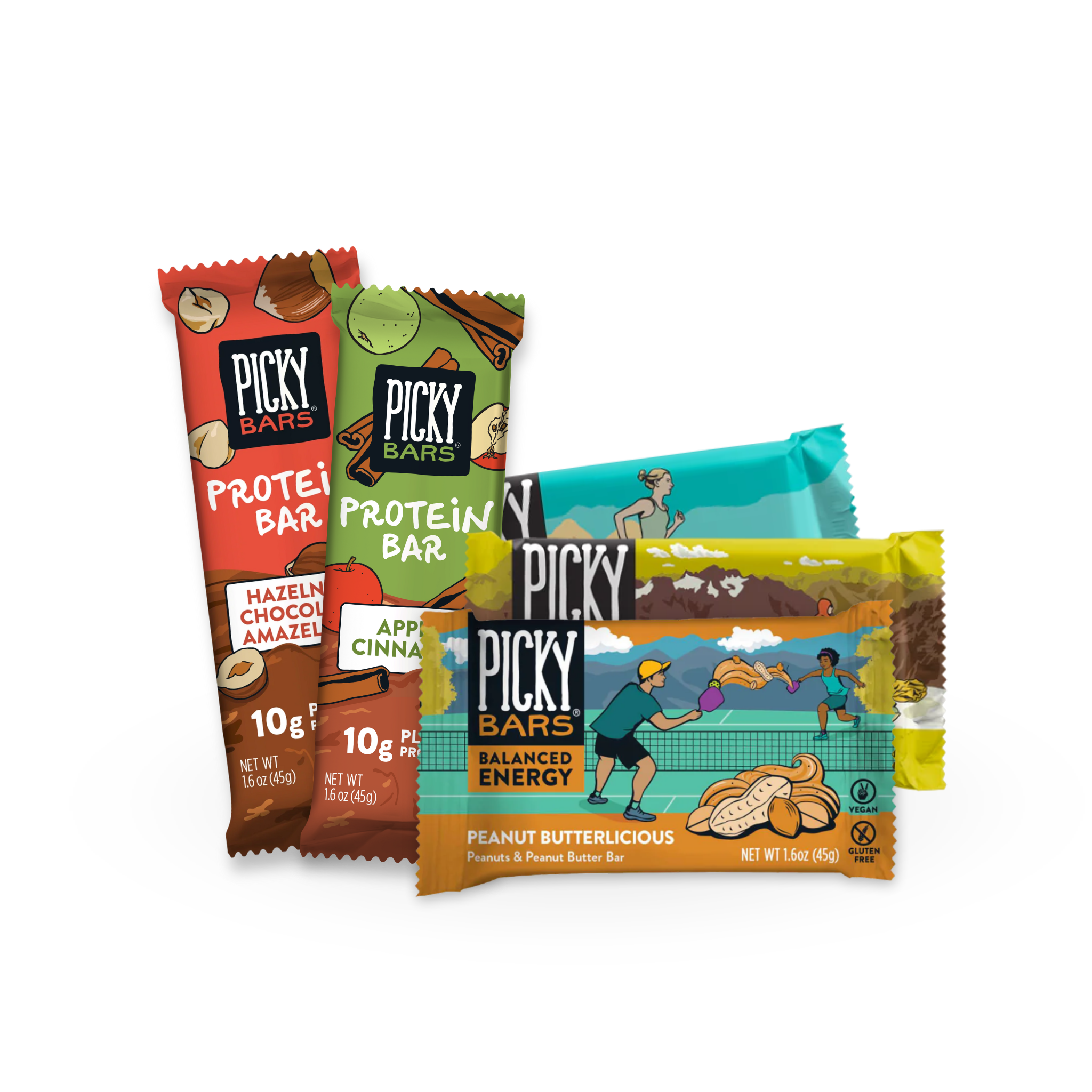

· By Sarah Conklin
30: Runner Strength Training, Sharing Parenting
Juggling work-life balance can be a real three-ring circus, which Lauren & Jesse know first hand. Led by listener questions, this new podcast is all about sports, biz, and family. [ASK YOUR QUESTION]
30: Exercise vs. sleep, strength training for runners, un-learning athletic lessons, parent-sharing duties
iTunes | Spotify | Google Play | Stitcher
Description:
From proper snot-rocket etiquette to how to divvy up parenting duties, this episode has something for everyone. Athletes? Lauren and Jesse go deep on the habits they developed in sport that they needed to un-learn in other areas of their lives. Parents? The Flomases talk about how they share parenting duties and what they do when they differ on a parenting approach. Biz owners? Jesse shares how he’s had to become more comfortable with failure as a business owner, and he critiques the roll-out of the latest Picky Bars product. Tune in for all that and way more.
What’s going on?
Lauren’s been studying wild writing with Laurie Wagner and is just back from a teacher-training retreat in California
Jesse talks about the rollout of PB&J all-day, and critiques his performance in both the commercial, and in the launch of the new granola.
Jesse’s going to race for the first time since Challenge Roth – a Nordic race called the Great Nordeen.
10:28 – Follow-ups
A listener writes in with advice from The Incredible Years. Carving out dedicated playtime for each child works well—each kid appreciates the quality time.
Ultra-, or marathon training and worried about what metrics are the “right ones” to use? Try trail running. Most ultras are held on trails where metrics matter less than road races due to the variability of the course. It’s a good way to simply focus on time.
Lauren and Jesse get some nice feedback from Episode 29, where they discussed transitioning away from life with one child.
13:10 – Warm-up laps
Get ready for a name change. “Lightning Round” has become Warm-Up Laps, to get Jesse and Lauren warmed up for the Meat and Potatoes!
Is it OK to take naps 20-30 minutes after a workout, or does that mess up your energy cycles?
L & J: Naps are good. Take them!
Lauren, what’s your favorite writing utensil?
L: Fine point pens in blue or black and G2 pens.
What chemicals/detergents do you use with your activewear to get the sweat smell out?
J: Defunkify.
L: I use clothes that are “anti-stink” or anti-microbial, like Oiselle’s Flyte lineup. And I do more frequent small loads of laundry—so the bacteria in the garments don’t breed, and the stink doesn’t fester!
Do you need to be able to properly snot rocket to be a great runner? Is snot rocketing ok? Can you give tips on form and etiquette?
L: Snot rocketing is essential, clearly. Put one finger on one nostril and push out quickly and forcefully with the other nostril. Do not hit your running mates, that’s bad etiquette.
J: Yes, snot rocketing keeps your nasal passages clear so you can breathe better. But do not blow out with both nostrils at the same time, that will result in a serious snot-rocket fail.
19:22 – The Meat and Potatoes (the main event!)
With two kids, it’s tough to balance parenting, exercise, and SLEEP. How do you choose between exercise and sleep on those really tough days? Is it better to catch sleep when you can, or to push through and try to get the miles in?
J: This is a very nuanced thing, and it’s probably different for every single athlete. But *generally* I think it’s better to sacrifice a little bit of sleep for a short amount of exercise. For example – if you can get a mile or two in on a 15-20 minute jog, that’s worth it. You might get 6 hours of sleep instead of 6.5, but the exercise will help you get better quality sleep.
- Sleep is really important
- It’s better to trade TV or “phone” time to make sure you get adequate sleep
L: Being in a sleep debt increases risk of injury or illness. So I keep that in mind when considering the training program. I will move hard days to a different day if I haven’t had a lot of sleep, or give myself a range to try based on how much sleep I’ve had or how I’m feeling. Don’t be afraid to dial back your training if you need more sleep, and don’t be afraid to push yourself if you’re feeling good!
- When it comes to sleep training for your kids, check out Healthy Sleep Habits, Happy Child.
I’m being drawn towards increasing strength in my training rather than speed. If I do running workouts on legs that are tired from strength training, am I more susceptible to injury? How much speed should I expect to sacrifice, now that I’m focusing on strength?
J: Strength training will generally increase your speed rather than hamper your performance. But avoid doing high intensity speed workouts directly after strength training—it is likely your risk of injury will increase.
- Give yourself a few weeks to acclimate to your strength training
- Lower your expectations in your workouts early on, you’ll be sore and most susceptible to injury during this time
- Strength training is one of the most underutilized training regimens for endurance athletes.
L: The latest research out of The Rep Lab here in Bend actually shows that, hormonally, it’s most beneficial to do strength training in the morning on a harder workout day!
- You’re likely to be the most sore 48 hours after a strength workout, so try to get your hard run in 24 hours before or after your strength training.
- If you’re doing recreational strength training at the gym, you shouldn’t be more injury prone on the trail.
- If you tweak something at the gym and then decide to run on that small injury, you have greater risk of an injury while running.
Are there lessons you’ve learned as an athlete that you’ve had to un-learn or reframe in the rest of your life because it wasn’t serving you off the field?
L: Because training—especially at elite levels—encourages you to override negative feelings, like pain, stress, feelings of unhappiness or being overwhelmed, you can begin to discount or dissociate those feelings in other areas of your life. And when you don’t work through those feelings or confront problems in your life, they can have a negative impact on your relationships and your general well being.
J: I agree with Lauren here. Another thing I’ll say is that it took me a long time to learn the difference between good pain and bad pain and that’s gotten me in trouble or led to injury many times. Like Lauren said, you override your feelings, and so it makes it challenging to actually listen to what your body is telling you.
- Needed to get more comfortable with failing in business rather than digging in when it isn’t smart to do so
- Failure isn’t “giving up” but instead it’s First Attempt In Learning
How do you approach sharing parenting duties?
L: We try to be ourselves with our kids. Sometimes there’s a good cop/bad cop in certain situations, but we try to be on the same team with important things. If we discover we’re not on the same side on a particular topic, we discuss it away from the kids and try to problem solve together.
- Culturally women are often designated the default parent—talk about this to avoid having an imbalance in household duties in heterosexual partnerships
J: We communicate a lot about how we’re feeling and try to be really diplomatic/democratic/fair about it. We certainly don’t have a score card, but we try to make sure it’s balanced where we can. If one of us is feeling unbalanced in our parenting duties or requirements, we communicate and try to not take things personally.
As always, submit your work/play/love question at pickybars.com/workplaylove - Thanks for listening!

[ PAST EPISODES + DESCRIPTIONS ]





